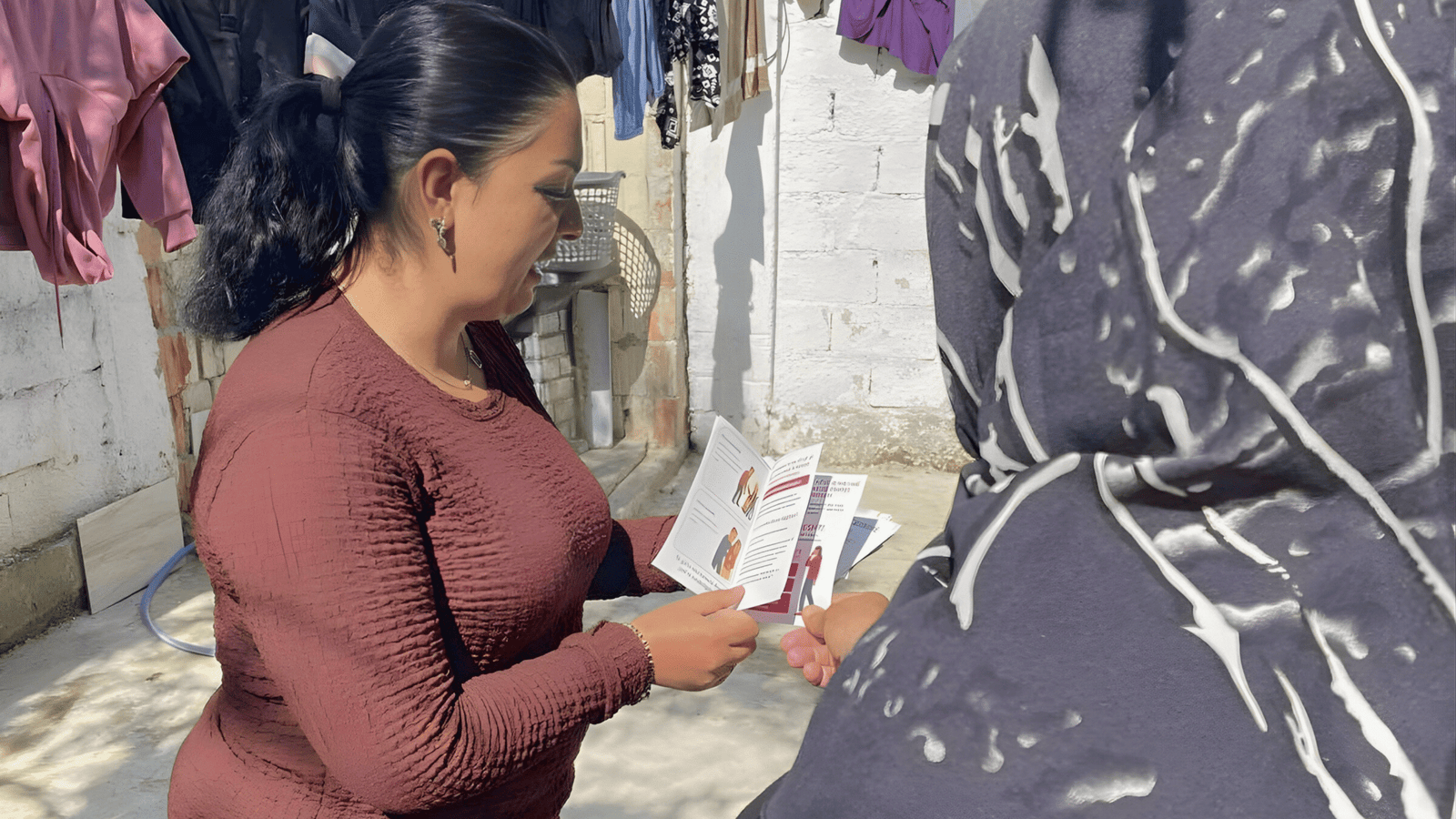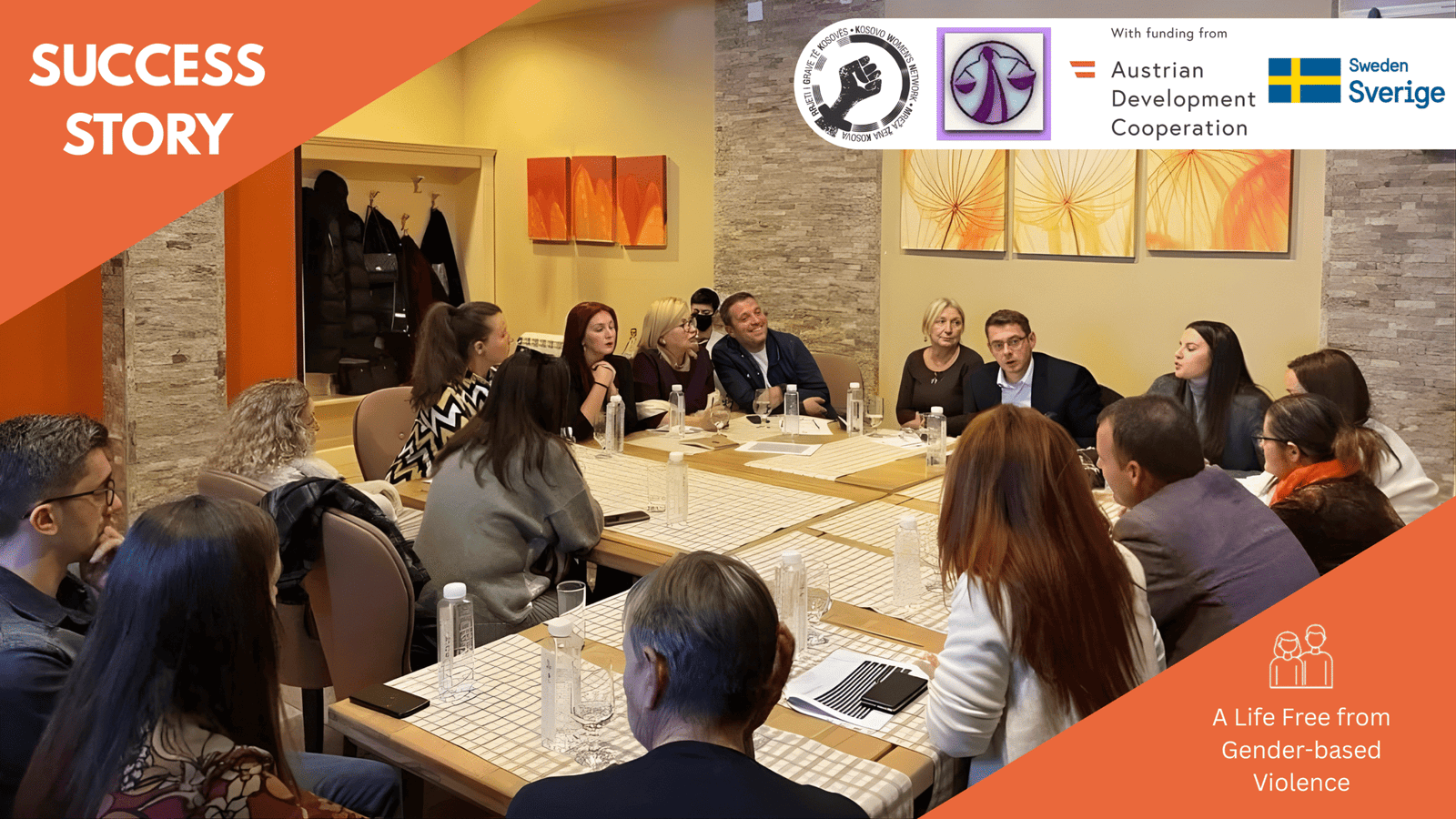On 9 June KWN presented to European Union (EU) representatives the report “Where is the Money for Women’s rights.”
This report provides information about funding trends related to gender equality and financial support of women’s civil society organisations (WCSOs) in the Western Balkans to better understand WCSOs’ needs.
The research was conducted in 2019 in six Western Balkan countries, by eight women’s organisations, led by the Kosovo Women’s Network, supported by Kvinna till Kvinna. It includes interviews with 71 funders and 241 diverse WCSOs.
At the forefront in addressing the widespread gender inequalities that exist in Western Balkan (WB) countries are women’s rights organisations (hereafter referred to as “WCSOs”). They are change-makers, advocates, service providers, researchers, teachers, and experts who have contributed significantly to several social, political, legal, economic, and individual level changes within their countries and beyond. WCSOs remain well-positioned to continue addressing pervasive gender inequalities in the WB and more broadly. For this work, WCSOs require resources. This report examines the funding available for their work. So the aims of this research were to provide information about funding trends related to gender equality and in support of women’s rights organizations in the Western Balkans from 2014 through 2019, and to better understand women’s rights organizations funding needs.
Speakers in this event included: Petra Tötternam Andorff, Secretary General, The Kvinna till Kvinna Foundation; Lisa Bjuggstam, Minister Counsellor and Deputy Head of Department for Foreign and Security Policy, Permanent Representation of Sweden to the European Union; Katarina Barley, Vice-President of the European Parliament; Nicole Farnsworth, Programme Director and Lead Researcher, Kosovo Women’s Network; Massimo Mina, Team Leader, MFF, Programming and Comitology, European Commission, DG NEAR; Liselotte Isaksson, Head of Sector, Civil Society and Social Inclusion, Western Balkans, European Commission, DG NEAR.
In her opening remarks Petra Tötternam Andorff, Secretary General, The Kvinna till Kvinna Foundation, said that it is crucial that everyone, collectively reflect if it’s being done enough to respond to the needs of women’s rights organizations. “I think is fair to say that the least the international community can do is to make sure that women’s civil society organizations have the proper funding to do the important work that they do.”
Commitments to furthering gender equality have been made by the European Union and the Gender Action Plan in the Women, Peace and Security agenda. Several funders also have made commitments to furthering gender equality in their work and through their strategies and policies.
“We believe that the European Union in particular is well positioned to further gender equality in the Western Balkans. Governments have pledged in our countries to the European Union policy agenda, which includes furthering gender equality,” said Nicole Farnsworth while presenting the findings of the report.
Further, Massimo Mina, Team Leader, MFF, Programming and Comitology, European Commission, DG NEAR considered very impressive all the work done for this report!
This report was written by KWN in close cooperation: The Albanian Women Empowerment Network, Autonomous Women’s Centre (Serbia), Centre of Women’s Rights (Bosnia and Herzegovina), Kosovo Women’s Network, National Network to End Violence against Women and Domestic Violence (North Macedonia), Rights for All (Bosnia and Herzegovina), Sandglass (Serbia), and Women’s Rights Centre (Montenegro).
The official launch of this report is expected to happen in September. You can find the report here: https://womensnetwork.org/wp-content/uploads/2020/06/Funding-WCSOs_FINAL_2020-06-11.pdf







